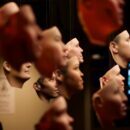Denying your own identity is a peculiar self-hatred
There’s been much debate in Kenya of late around the subject of skin lightening. As we know, many young African and South Asian women take this option, using skin-harming products to chase the illusive beauty myth that surrounds light skin.
Many of them, when challenged, defend the practice, calling it no different from changing their dress, hair, or even accents to fit in with common perceptions of beauty and acceptability.
But there is a difference, and it’s quite a big one. Dressing and other surface alterations are one thing: going for your skin itself is altogether another. It’s a very peculiar self-hatred that causes you to be dissatisfied with the very skin in which your body is housed. No one can prosper in life when caught in the throes of self-hatred and denial of fundamental identity.
Before we condemn those who do hate themselves thus, let’s reverse a little and consider the causes. Why should anyone start hating the way they look? Surely no one is born hating themselves, any more than anyone is born a racist. Issues of identity are instilled in children by other people, and by a world full of ridiculous norms that we all seem to accept as a natural state of being.
You’re not born thinking ‘those other people’ are inferior to you; some small-minded bigot has to teach you that. Sadly, it’s most often a parent, a teacher, or influential elder that does it. Equally, you’re not born thinking ‘those other people’ are superior to you; a society and its prevailing culture and communication messages have to place that inferiority complex in your heart.
If many African women feel the need to look and sound un-African, then that is the fault of western media messages that propagate the idea that looking African is unattractive; but it is also the fault of influential Africans who fail to counter that racist message, and in fact pander to it.
I ask so many of my corporate clients: why does your advertising imagery invariably feature light-skinned Africans, none of whom even look Kenyan? Why do newspaper editors pick stock photos of light-skinned, mixed-race Africans when trying to show a typical Kenyan middle-class family? How many Kenyans actually look like that?
The answer is always the same: it works. Kenyans respond better to marketing messages that show lighter-skinned people. They are put off by people who look too dark. It’s that peculiar self-hatred again, writ large in society. So don’t rush to berate the women who seek to lighten themselves; they’re merely responding to the signals of society around them.
I find this unbearably sad. To hate your origins is to hate yourself all of your life, and that is a life utterly wasted. To spend so many years trying to wind a path away from your true self is to engage in an act of futility. Trying to look, walk, talk, dress like anyone other than yourself is to be nothing better than a mimic, a photocopy, a pretender. Originals get copied, not copies.
One part of humanity tries to lighten its skin tone; another keeps trying to darken it. Caught as we are in the superficiality of commercially induced appearance standards, we all become fakers and pretenders, trying to be everything other than what we actually are.
The only true path in life is not only to accept your origins; it is to revel in them. Be proud, rejoice, stand tall. That path is not always easy for the mass of humanity; it is for people of influence to stand for authenticity and model the way. If ordinary people are falling into mimicry, it is the leading lights of society who are to blame.

Buy Sunny Bindra's new book
The X in CX
here »
Popular Posts
- Keep you, youAugust 17, 2025
- Bruise, mend, continueAugust 31, 2025
- To stay the same—change!August 24, 2025
- Some lives are lived on the peripheryAugust 3, 2025
- The cost of pretenceSeptember 7, 2025















